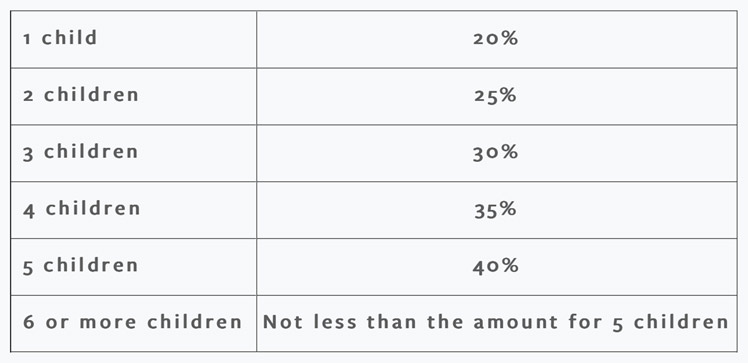Click on the topic to expand.
ADULTERY
WHAT IMPACT DOES ADULTERY HAVE ON DIVORCE PROCEEDINGS IN TEXAS?
The significance of adultery in a divorce varies
depending on the circumstances and how it is treated under Texas law. Here
are some key points to consider:
- No-Fault Divorce: Texas is a "no-fault" divorce state, which means that couples can get divorced without proving that one party is at fault for the marriage's breakdown. In a no-fault divorce, the only grounds required for divorce are in supportability, meaning that the marriage has become insupportable due to discord or conflict.
- Impact on Property Division: In most cases, adultery does not directly affect the division of property in a divorce. Texas follows community property laws, and property is generally divided based on what is considered community property (acquired during the marriage) and separate property (owned before the marriage or received as a gift or inheritance). Adultery itself does not automatically impact how property is divided.
- Alimony or Spousal Support: Adultery can have some relevance when it comes to the award of alimony or spousal support (also known as spousal maintenance) in Texas. If a spouse can demonstrate that the other spouse's adultery caused the breakup of the marriage, it may influence the court's decision on whether to award spousal support. However, the court may consider other factors, such as the financial needs and resources of each spouse, when making this determination.
- Child Custody and Visitation: Adultery generally does not have a direct impact on child custody decisions in Texas, as custody determinations are primarily based on the best interests of the child. However, if the adulterous conduct has a detrimental effect on the well-being of the child, it could be considered in custody decisions.
- No Adultery Clause in Prenuptial Agreements: Some prenuptial agreements in Texas include clauses specifying the consequences of adultery, such as a financial penalty or a different property division arrangement. These clauses may be enforceable if they meet certain legal requirements.
- Proving Adultery: If adultery is alleged as a ground for divorce or is relevant to issues like spousal support, the accusing spouse may need to provide evidence of the adulterous conduct.
It's important to note that while adultery can have some legal
implications in a Texas divorce, divorce proceedings in the state generally
focus on in supportability and the best interests of the child. Consulting
with a family law attorney in Texas is advisable if you have questions about
how adultery may or may not affect your specific divorce case, as the legal
aspects can vary depending on the individual circumstances.
COSTS OF DIVORCE
HOW MUCH DOES A DIVORCE COST IN TEXAS?
The cost of a
divorce in Texas can vary significantly based on various factors, including
the complexity of the case, whether it is contested or uncontested, and the
legal representation chosen. Here are some of the key expenses associated
with divorce in Texas:
- Filing Fees: To initiate a divorce in Texas, you'll need to pay filing fees to the court. Depending on the county in Texas, these fees typically range from $250 to $350.
- Attorney's Fees: The cost of legal representation can vary widely. If you hire an attorney to handle your divorce, the fees will depend on factors such as the attorney's experience, the complexity of your case, and the specific services required. In Texas, attorney's fees can range from a few thousand dollars for an uncontested divorce to several thousand or more for a contested divorce with complex issues.
- Court Costs: In addition to filing fees, there may be additional court costs associated with the divorce process. These can include fees for document filing, copies, and other administrative expenses.
- Mediation or Alternative Dispute Resolution: If you and your spouse opt for mediation or other alternative dispute resolution methods to settle issues in your divorce, there will be associated fees for the mediator's services, usually $850 per side and up for a full day.
- Expert Witness Fees: In cases involving complex financial matters, property division, or child custody disputes, you may need to hire expert witnesses, such as financial analysts or child custody evaluators. These professionals charge fees for their services.
- Service of Process: If your spouse needs to be
served with divorce papers, there will be costs associated with process
service.
It's important to keep in mind that uncontested divorces tend to be less expensive than contested divorces because they typically involve fewer legal disputes and court hearings. In an uncontested divorce, the parties can agree on the terms, and the process is generally more streamlined and cost-effective.
The cost of a divorce in Texas can vary greatly, but it's essential to
have a clear understanding of your specific circumstances and needs when
budgeting for your divorce. Consulting with an attorney and discussing your
financial concerns and goals is advisable to ensure that you make informed
decisions throughout the divorce process.
If you have any questions, we
have answers.
CHILD SUPPORT
EXACTLY WHERE DOES CHILD SUPPORT COME FROM?
Salary, wages, overtime, commissions, tips, bonuses, net rental income,
self-employment income, interest, dividends, and royalty income. It also
comes from severance pay, retirement and pensions, income from trusts,
annuities, social security benefits, capital gains, unemployment, disability
and worker’s compensation, gifts, prizes, spousal maintenance, and alimony.
WHAT IS EXLUDED AS INCOME FOR CHILD SUPPORT?
Return
of capital, accounts receivable, payments for federal public assistance
programs, and payments for foster care.
IF YOU ARE UNEMPLOYED, YOU STILL
HAVE TO PAY CHILD SUPPORT.
DO I HAVE TO PAY CHILD SUPPORT IF I AM INCARCERATED?
Yes. Even if you have no income, the child support is based on 40 hours per
week minimum wage. Each time you miss a payment, you owe more due to the
interest charged.
THE FOLLOWING ARE CHILD SUPPORT GUIDELINES
CHILD SUPPORT IS DUE ON THE FIRST OF EACH MONTH AND IS CONSIDERED LATE ON THE LAST DAY OF THAT MONTH.
HOW DO I PROTECT MYSELF IF I PAY MY EX CASH FOR CHILD
SUPPORT?
We do not recommend that you pay child support in cash. But
if you do, have your ex sign an Affidavit for each payment and keep that as
proof of payment. Money Orders and bank statements should also be saved as
proof of payment.
The best ways to pay child support are:
- Use Smart e-pay, MoneyGram, Money Order, or a Touch Pay Kiosk (fees apply)
- Check or a State Disbursement Unit (fees apply)
- Withholding Order from your paycheck
- Autograft from your checking account
WHEN I WAS
MARRIED, MY WIFE AND I HAD A BABY. WE ARE NOW DIVORCED BUT I HAVE JUST FOUND
OUT THE BABY IS NOT MINE. DO I STILL OWE CHILD SUPPORT AND AM I ENTITLED TO
THE MONEY I PAID?
You will most likely not be reimbursed for the
child support you paid, but if you can prove the child is not yours, then
future child support may be abated.
I MADE A LOT LESS MONEY WHEN MY
CHILD SUPPORT WAS INITIALLY SET. CAN I HAVE MY CHILD SUPPORT LOWERED?
If the order is more than 3 years old or if there is a $100 or 20%
difference in what you should be paying, you may be eligible to have it
lowered. Also, if there has been a material and substantial change in
circumstance you may make a request. Those would be if the medical insurance
has changed, additional children on child support has changed, or if the
child/children are now living with a different parent.
WILL
BANKRUPTCY WIPE OUT MY ARREARS ON CHILD SUPPORT?
Bankruptcy may
assist you with making your child support payments, but you will still owe
child support.
CUSTODY
DO WOMEN ALWAYS GET CUSTODY IN TEXAS?
No, women do not always get custody of children in Texas divorces or custody
disputes. Child custody determinations in Texas are made based on the best
interests of the child, without regard to the gender of the parent. Texas
family courts are guided by a set of factors and considerations when
deciding custody, and these factors include the ability of each parent to
provide a safe and nurturing environment for the child.
It is a common misconception that women are favored in custody cases. In reality, Texas family courts strive to make custody determinations that are in the best interests of the child. Factors considered in child custody decisions may include:
- The child's emotional and physical well-being.
- The child's relationship with each parent.
- Each parent's ability to provide a stable and supportive environment.
- The child's age and preference (if the child is old enough to express a preference).
- Any history of family violence, abuse, or neglect.
- The child's educational and medical needs.
- The geographical proximity of the parents' residences.
- Each parent's willingness to facilitate a healthy relationship between the child and the other parent.
- Each parent's work schedule and availability for parenting.
- The ability of each parent to meet the child's financial, emotional, and developmental needs.
It's important to note that Texas law presumes that parents should have
joint managing conservatorship (joint custody) unless it is proven to be
against the best interests of the child. Joint managing conservatorship
means that both parents share in the rights and responsibilities of raising
the child, including decision-making and visitation.
In cases where
parents cannot agree on custody arrangements, the court will make the final
determination. When deciding on custody, the court does not give preference
to one parent based on their gender. The focus remains on the best interests
of the child and the individual circumstances of each case.
It's always
advisable for parents involved in custody disputes to consult with an
experienced family law attorney to understand their rights and
responsibilities and to help navigate the legal process effectively.
DISCOVERY
WHAT IS DISCOVERY?
Request for
Production, Requests for Interrogatories, Request for Disclosure, Request
for Admissions and Depositions. It is the means to gain evidence to prove
your case and is a crucial part of any lawsuit. If you do not answer
discovery, you cannot use any of the information at trial. If you do not
disclose your experts and witnesses, you can’t have them testify at trial.
WHAT DOES A REQUEST FOR PRODUCTION INVOLVE?
Requesting documents pertinent to the case, request to inspect evidence and
to enter property. Most items are obtainable online, or your attorney may
use a record retrieval service. If there are items that cannot be obtained,
your attorney will state that you do not have them. A court may levy
sanctions if production is available but not forthcoming. Once a request for
production is served, there is a duty to continue to supplement the
production as a new document becomes available.
WHAT ARE INTERROGATORIES?
These are questions the
opposing side asks. You must respond with written answers, and you must
swear that your answers are truthful.
WHAT IS A REQUEST FOR ADMISSIONS?
This is a set of
statements posed by the opposing party for you to Admit or Deny.
WHAT IS A REQUEST FOR DISCLOSURE?
These are request
for disclosure framed as questions regarding names of any relevant parties
in the case, legal theories and facts of the case, and names of people with
relevant information. Anyone you may want to call as a witness should be
named, otherwise that person may not be permitted to testify.
WHAT IS A DEPOSITION?
This is an interview of a
party, expert or witness to the case and can be made in person or remotely
and is done under oath. Usually, all parties are in attendance. The
deposition is recorded by a court reporter and may also be videotaped. It is
a tool an attorney uses to find out how a party, witness or expert will say
prior to trial. It can be used in place of trial or to impeach an expert who
testifies to something other than what was said in a deposition.
PRENUPS
WHAT IS THE VALUE OF A PRENUP?
A
prenup can address financial agreements, and intimate agreements, but it
cannot do anything that adversely affects the right of a child to support.
Some couples use a prenup to avoid creating any community property in the
marital estate.
A prenup can wave rights to a retirement account, but the Federal Law (ERISA) requires a ratification of that agreement after the couple is married. You sign the prenup prior to marriage, but you waive any rights to retirement after the marriage.
If you have separate property, careful continuous follow-through about bookkeeping, segregation and documentation go a long way to proving separate property in the case of divorce.
If one side is insisting on a prenup, you should always have your own attorney review and explain the terms of the prenup. The prenup should not be so one sided, and allow your attorney to negotiate terms on your behalf. There are many ways to make a prenup fairer. Gifts of separate property based on years married or upon the death of your spouse can alleviate your fear of being left with nothing.
STANDING ORDERS
WHAT IS A STANDING ORDER?
Standing
orders are in place to set out general guidelines for how the parties’ case
should behave with regards to property/use of money, conduct of the parties,
personal and business records, insurance, household bills/documents and
evidence and children. The standing order will go into effect when the
petition is filed.
Standing orders will not allow you to change the terms of you will until your divorce is final. You also cannot change the beneficiaries on your retirement account or take out a loan against your 401K until your divorce is final. All property is presumed to be community property until it has been shown to be separate property by clear and convincing evidence.
TEMPORARY ORDERS
WHAT ARE TEMPORARY ORDERS?
After a
hearing, a judge will determine temporary orders. Temporary orders are the
rules for the parties during the pendency of the divorce of custody case.
They usually include financial guidelines and orders regarding possession
and access to the children. They set clear guidelines regarding spending,
support, and visitation. Without temporary orders one or both parties may
claim they were unclear on issues and may create standing orders that
protects the estate. Temporary orders define when the children are with each
parent, and the conditions of the exchange.
HOW DO I GET TEMPORARY ORDERS?
It may be simply
having the two attorneys discuss issues and make an agreement on the issues,
with input from their clients. If terms are not agreed upon, a judge holds a
hearing, or a mediation for temporary orders may be necessary. Depending on
what all is involved, it may be very short or last over several days. The
judge will issue a ruling and one of the attorneys will prepare the judge’s
ruling in the form of an order. The opposing attorney reviews and comments.
Changes are then made and either accepted or presented before another
hearing for the judge to settle the remaining issues with the language of
the temporary order. Temporary orders can be modified. Temporary orders
expire when a final judgment in the case is made, either by trial or by
agreement.
SEPARATE AND COMMUNITY PROPERTY
Separate property is property you owned prior to the marriage, plus any gifts or inheritances and any recovery for personal injuries (except those for lost wages) received during the marriage.
Community property is everything that isn’t separate property unless the separate property can be traced by clear and convincing evidence.
Mixed property is both community and separate and arises when separate property and community property are mixed.
HIDDEN ASSETS
ARE HIDDEN ASSETS LEGAL?
Hiding
assets in a Texas divorce is illegal and unethical. When a couple goes
through a divorce in Texas, they are required to disclose all their assets
and liabilities, as part of the property division process. Failing to do so
and intentionally hiding assets is considered fraudulent and can have
serious legal consequences.
Here are some common tactics individuals
might use to hide assets during a divorce and how the legal system can
address these issues:
- Underreporting Income: One common method is underreporting income or delaying the receipt of bonuses, raises, or other forms of compensation until after the divorce is finalized. Courts can examine financial records and tax returns to detect discrepancies in income reporting.
- Transferring Assets: Spouses may try to transfer assets to family members, friends, or offshore accounts to keep them out of reach during divorce proceedings. The court can trace the movement of assets and may consider them when dividing property.
- Overpaying Debts: Some spouses may purposely overpay debts or expenses to reduce the amount of available assets. Courts can scrutinize financial records to identify unusual payments.
- Hiding or Undervaluing Assets: This involves physically hiding assets or intentionally undervaluing them on financial disclosures. Courts may hire forensic accountants to trace hidden assets.
- Using Shell Companies: Establishing shell companies to transfer or conceal assets is another tactic. Courts can scrutinize financial records and conduct forensic accounting to identify these actions.
- Stock Options and Deferred Compensation: Some spouses might not fully disclose stock options or deferred compensation, which can be considered community property. Courts can order a spouse to provide these records.
If a court determines that one spouse has intentionally hidden assets during the divorce process, they may impose various penalties, including:
- Awarding a greater share of the community property to the innocent spouse.
- Ordering the party who hid assets to pay the innocent spouse's attorney's fees.
- Holding the party in contempt of court, which can result in fines or even jail time in extreme cases.
To ensure that assets are accurately disclosed and fairly divided during a divorce, it's crucial to work with an experienced family law attorney who can help you navigate the legal process, uncover hidden assets, and protect your rights and interests. Additionally, financial experts and forensic accountants may be involved to uncover.
RETIREMENT
QUALIFIED DOMESTIC RELATIONS ORDER (QDRO)
It is used to divide 401ks and pensions upon a divorce in a non-taxable
method. It must be signed by a judge in accordance with the agreement or
ruling in a divorce case and filed with the plan administrator. The account
may be split so that each party has his/her own account and can direct the
investments for themselves. They also don’t have to depend on the ex-spouse
for payment of their share. If you do not do a QDRO, your ex could withdraw
all of the money because the plan administrator would have no way of knowing
that you were entitled to part of it. As companies change, it is also
difficult to track down funds without the assistance of a willing ex-spouse.
If the ex-spouse dies, the money may be passed through probate without you
getting your share.
MEDIATION
In most Texas counties, courts mandate mediation prior to a case obtaining a court date for final trial. Because Family Law courts are crowded, mediation is a good way to settle cases, and it allows clients to be in control of the outcome. The client can say what is negotiable and what is not. In a trial, the court hears a snippet of testimony, and then the judge decides, and you have to accept that decision without the ability to negotiate. Trials can be very expensive. Mediation gives clients the opportunity to settle their divorce without a hefty cost and decisions being mandated by a judge.
If terms are met in mediation, the attorneys will sign a Mediated Settlement Agreement. This is an irrevocable agreement that sets out the terms of the agreement. A final decree of the divorce will be drafted and both sides will sign.
Part of a case may be settled through mediation, and the other part may go to court for settlement.
|
Mark Rush Williamson
Rated by Super Lawyers loading ... |
Williamson Family Law. All rights reserved. Site proudly designed and hosted by Aggieland Website Design








